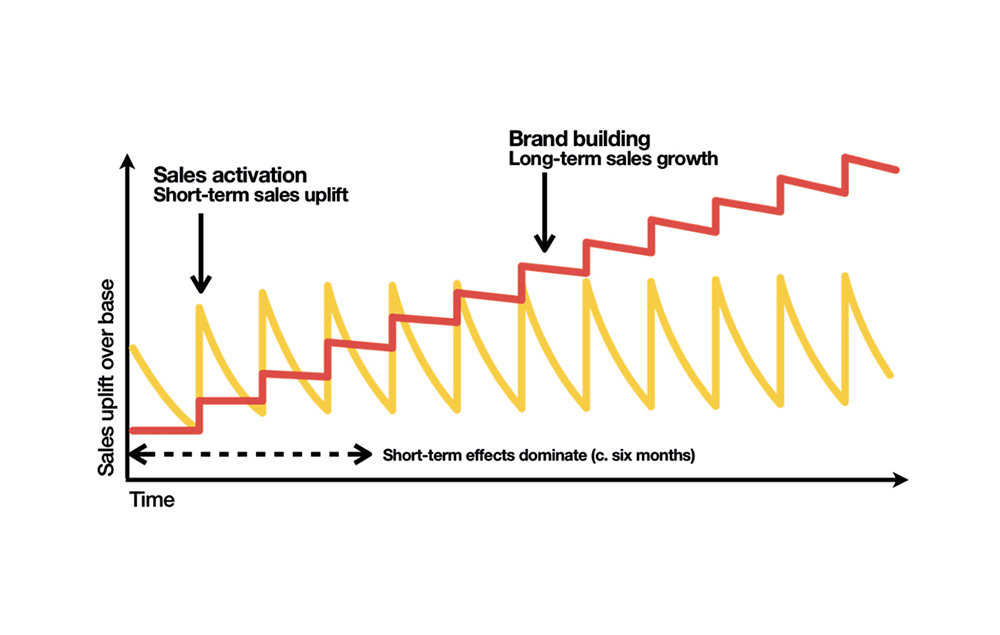How do you determine a marketing budget that works?
-
 Dennis Damen / Merkstrategie
Dennis Damen / Merkstrategie
At Vandeez we help brands grow with creative strength, but always from a strategic foundation. And that starts with a clear marketing budget. No wet finger work, well thought out and tailored to your goals.
Start with your goal
An effective marketing budget starts with a clear goal. Do you want to build brand awareness? Generate more leads? Conquer a new market? Your ambition determines your route and your resources. Only when you know where you are working, can you estimate which activities are needed, what they can cost and what they can deliver. Therefore formulate clear annual goals. This way you can target target, include in your annual budget and, where necessary, substantiated approval faqs to management or MT.

Make goals measurable ': KPIs per year
Once your goals are clear, you can link your marketing budget to concrete KPIs (key performance indicators); Measuring points that provide insight into the effectiveness of your efforts. Think of:
- Number of leads per month
- Growth in website traffic
- Conversions per campaign
- Enlarge range and clicks via Search
Measuring is knowing. By working with annual KPIs, dashboards and reports you can quickly see what works, which needs to be adjusted and where your budget yields the most. In this way you not only build more effective campaigns, but you also develop a sharper view of what your ideal marketing budget is, now and in the future.
In short: goals provide direction → KPIs make it measurable → budget makes it possible.
What do you use marketing budget for?
Your marketing budget consists of more than just advertisements. Think of:
- Strategy: brand positioning, target group analysis, competition analysis
- Creation: Design, Copywriting, Photography, Video, Content Production
- Distribution: Paid media such as Social Ads, Google Ads, Banners, SEA/SEO
- Technology: Tools, CRM, e-mail marketing software, AI tools
- Activation: Campaigns, Promotions, Influencer Marketing
- Events: Open Day, Webinars, Network Bee Enass
- Sponsoring & Partnerships: aimed at visibility or association
- Partners: agencies and freelancers
- Marketing staff: can be part of the marketing budget, but that depends on how you structure the budget.
At Vandeez, we help you structure your budget wisely, based on impact, not instinct. So your marketing budget performs where it truly matters.
The right balance in marketing budget
Marketing is often the first thing companies are cutting back. While it is your brand that attracts customers and talent, add value and stays up if things are going wrong. According to research by Jonathan Knowles (type 2 consulting), on average 20% of the market value of a company is brand value. Don't invest? Then you leave value.
In addition, it is tempting to put your entire marketing budget on activation for the short term: running campaigns, scoring leads, optimizing conversions. But real growth requires more. Strong brands also build the long term; With visibility, trust and brand preference. Discover in this blog why a focus on only the short term your brand is in the way of your brand.
According to Les Binet & Peter Field, the ideal balance is 60/40 (brand building/activation) in B2C and 46/54 in B2B. Yet in practice, we often see sales activation taking up almost everything. And that is a shame, because without brand building for the long term you do not build anything. At Vandeez we help you find the right balance with a clear brand strategy and a brand activation plan that really works.

Rules of thumb for determining marketing budget
There are different formulas and methodologies to determine a marketing budget. Which method fits best depends on your goals, market position and growth phase. Below you will find the most used rules of thumb.
| Method | Description | Pros and cons |
|---|---|---|
| 1. Turnover percentage |
Turnover × percentage
|
+ Fast and simple - Does not take into account ambition or market dynamics |
| 2. Targeted | Sum of all costs to achieve goals eg. Website, campaign, content, media = total budget |
+ Strategic and tailored to your plans - costs more preparation and only works if your goals are clear |
| 3. Competition-oriented | Compare spending with competitors | + Practical in competitive markets - Based on assumptions, not on vision |
| 4. Cost-per-Lead | Leads × costs per lead Budget based on number of desired leads and costs per lead |
+ Clear and quickly applicable with lead generation - Less focus on brand building and future growth |
| 5. ROI-based | ROI × turnover growth Budget determined on the basis of desired yield compared to expected turnover growth |
+ Helps with substantiation towards management or investors - difficult to predict without historical data and little focus in the long term |

Our approach for a customized budget
At Vandeez we do not believe in standard formulas. No company is standard. B2B or B2C, niche or mass, large or small, it requires customization based on brand ambition, growth phase and impact. That is why we combine multiple methods:
- Analysis of your brand position and growing goals
- Translation to brand strategy and brand activation plan
- Budget distribution in long vs. short -term
- Realistic estimate based on goals, resources, campaigns and resources
That way you not only know how much you invest in marketing, but also where and why makes the difference for your brand.
A marketing budget that works?
Whether you launch a new brand, want to strengthen your market position or scale up internationally, we help you with strategy, creation and smart budget choices. Want to know more? Contact us for a non-binding advice.




























































Be inspired by our cases, insights and market trends.


